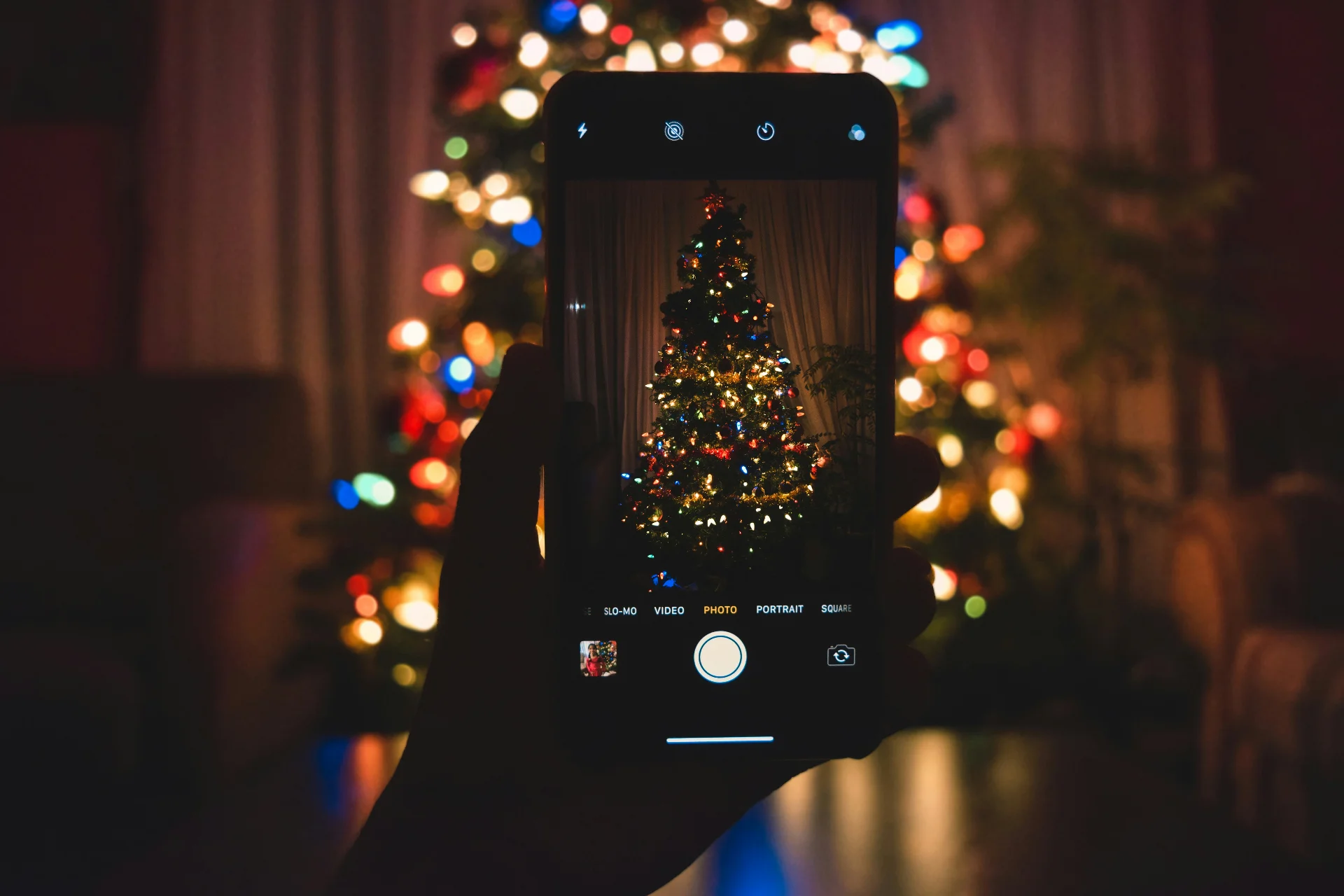
Scrolling through social media can feel heavier than ever as year-end comparison, holiday pressure, and curated highlight reels weigh on your mood. Learn how to protect your emotional wellbeing with self-awareness, gratitude journaling, and practical strategies.
Social media is more than just a space to connect, it has become a mirror reflecting idealized lives, especially during the late-year months. That constant scroll, the perfectly curated feeds, and the holiday highlights can hit harder than you realize. Mood shifts during Thanksgiving, Christmas, or New Year’s season often feel more intense, amplified by comparison and emotional overload. In this article, we’ll explore how you can safeguard your emotional wellbeing and deal with social media comparison.
Research shows that upward social comparison, where you compare yourself to those you think are "living the best life", can lead to feelings of depression when using social media.
These comparisons are hard to avoid because many posts on social media are highlight reels that showcase successes, celebrations, and picture-perfect moments. This often fuels feelings of envy or self-judgment.
A recent large-scale study found a strong link between frequent and intense social comparisons and poorer mental health outcomes.
Passive social media use, which means scrolling through others’ posts without engaging, has been linked to declines in personal wellbeing. When you consume content passively, it’s easier to slip into comparison mode since you are absorbing everyone else’s curated moments without knowing their struggles.
Heavy use of social media can lead to cognitive overload. This means your brain is working hard to process all the content, which amplifies the negative impacts of comparison. Cognitive overload doesn’t just exhaust you mentally; it can also lead to emotional fatigue, making you more vulnerable to mood drops.
Platforms are designed to keep you scrolling. Infinite scroll, curated feeds, and algorithms highlight emotionally powerful content, whether it induces envy or comfort. Studies show that interventions, like breaking the scrolling cycle, are less effective if they don’t consider your situation (like how you’re feeling or where you are). New design research suggests that social media could offer “Reality Mode” versus “Inspiration Mode” to reduce comparison. However, most platforms still prioritize idealized content by default.
At the end of the year, during Thanksgiving, Christmas, and New Year, social media is full of celebrations, gifts, success stories, and family gatherings. This creates a double blow: you’re already more emotionally sensitive from holiday reflections, and you’re bombarded with aspirational content and social highlights. The result is heightened mood swings, deeper envy, and a stronger feeling of “I don’t measure up.”
Holidays are emotional times filled with gratitude, nostalgia, longing, and loneliness. Social media contributes to this by showing others having “perfect” holiday experiences. The contrast between your reality and others’ curated holiday snapshots can magnify feelings of inadequacy.
The end of the year is a time for reflection, goal setting, and comparing what you’ve achieved with what others seem to have achieved. Fear of Missing Out (FOMO) increases: you may worry about not being at the “right” party, not traveling, or not reaching important milestones.
During the holidays, people often have more downtime, leading to more screen time, more passive scrolling, and increased exposure to comparison triggers. This increased usage can lead to cognitive overload and emotional fatigue, reducing your resilience.
Ironically, while people may feel more “connected,” they can also feel more isolated. Online comparisons can reinforce distance instead of closeness.
Track Your Mood:**** Pay attention to how you feel before, during, and after scrolling. Do you feel energized, jealous, resentful, or worn out? Set Intentional Time Limits: Use your phone’s digital wellbeing tools to limit passive scrolling. Schedule “no-scroll” times, especially around emotionally sensitive moments (like evenings or holiday gatherings). Reflect on Comparison Triggers: Ask yourself which accounts trigger you the most. Why are you drawn to them now? This can provide insight into your emotional patterns.
Starting with this holiday season, take a moment to write down three to five things you are genuinely grateful for. This simple habit shifts your attention away from what others are doing, back toward the abundance that's already in your own life. You can also use this time to journal about how social media makes you feel. Putting those emotions into words helps you understand them more clearly and recognize the patterns behind them.
This is basically what a gratitude journal is. You can use a traditional pen and paper notebook, or you can try Moodflow journal to track how social media affects your mood and how those feelings change over time. With consistency, this daily reflection helps you reconnect with yourself, notice unhealthy comparison habits, and stay focused on what truly matters to you. After some time, you will be so grateful about what you have, that you'll be able to also smile at other people happiness.
A pilot study found that a “social savoring” technique, which involves feeling joy for others’ positive moments, can reduce social comparison and boost connectedness. When you see a post that usually triggers envy, take a moment to think about what that achievement means for that person. Then, allow yourself to feel happy for them. This practice builds empathy and reduces the sting of comparison.
Unfollow or mute accounts that consistently bring you down. Follow accounts that share real, authentic, imperfect moments. Look for people being themselves rather than presenting an Instagram-perfect image. You can also try to engage purposefully when you feel a positive emotion. Don’t just scroll: comment, congratulate, and connect where you genuinely resonate.
When you catch yourself mindlessly scrolling, take a break. Take a few deep breaths, stretch, or step away. Use reminders or small interventions, like phone pop-ups or break timers, to ask yourself, “How are you feeling right now?” This can help interrupt the autopilot routine. If you can, redesign your viewing experience. Some research suggests that adjusting platform design, like toggling between ideal and realistic content, may help reduce negative comparisons.
Scrolling on social media may feel tougher lately, and it’s not in your head. The mix of year-end reflections, holiday highlights, algorithm-driven exposure, passive browsing, and comparison creates a deeper emotional impact.
However, by building self-awareness through journaling, cultivating gratitude, practicing social savoring, and curating your feed, you can safeguard your emotional wellbeing and preserve your mood to navigate the season with more resilience.
Q: Is social media always bad for mood?
A: Not always. While comparison can harm your mood, social media can also provide connection, support, and inspiration, especially when used purposefully. The impact depends on how you use it, not just how much.
Q: How long does it take for journaling to help with mood?
A: Even writing a few lines each day, for just 5 minutes, can shift your mindset in a couple of weeks. Over time, you might notice better emotional clarity and resilience.
Q: Should I quit social media during the holidays?
A: You certainly can, however you don’t have to quit entirely. Instead, consider setting boundary goals, like reducing passive scrolling, curating your feed, or using mindful breaks. These strategies can help you engage in a more emotionally healthy way.

Mental Health Advocates
The Moodflow product, research, and clinical advisory group sharing evidence-based insights on emotional wellness.
Continue exploring with these related posts

The viral return of retro Christmas decor and how nostalgia boosts mental health and emotional wellbeing during the holidays.

Explore how International Mind‑Body Wellness Day can inspire a more intentional and balanced start to 2026. Discover simple ways to care for both your mental and physical health, how the Wolf Supermoon adds symbolic meaning to the day, and why tools like Moodflow can help make wellness a daily habit.

Discover how the simple yet powerful concept of Year in Pixels can transform your emotional awareness and personal growth in 2026. Learn what it is, how it works, and why it’s the easiest way to turn your daily moods into life‑changing insights.

Discover how sleep quality drives mood and try three low-effort changes you can implement tonight to feel better tomorrow.
Ready to start your wellness journey? Download the app and experience better mental health tracking.